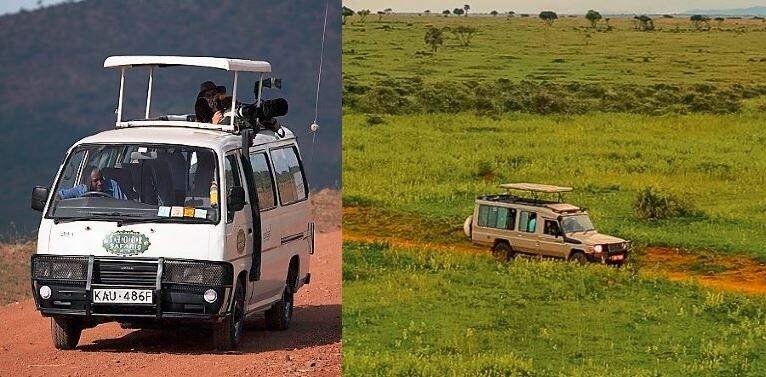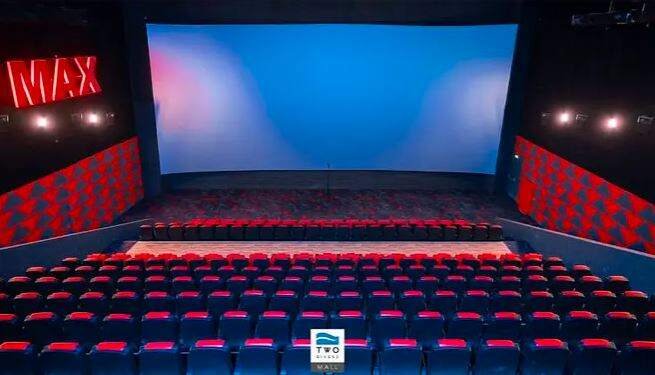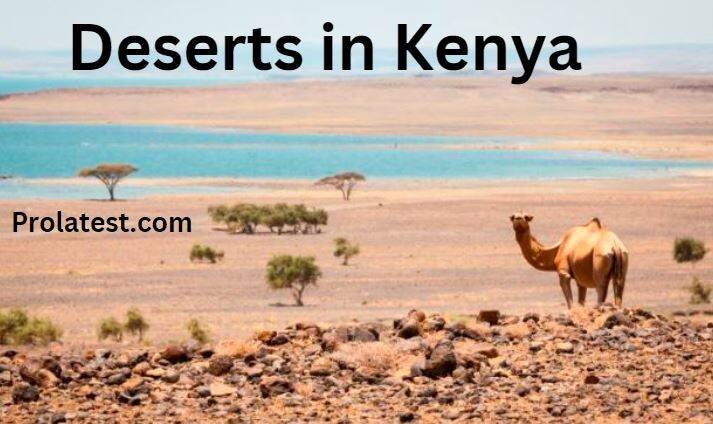Starting an Airbnb business in Kenya is an excellent way to escape the daily grind and be your own boss. This is because the Airbnb business has gained significant popularity in Kenya. With the local unique blend of wildlife, national parks, and coastal resorts, travelers find it a prime destination for an authentic African experience. However, do you know how to start an Airbnb business in Kenya?
You don’t want to start an Airbnb business in Kenya without adhering to the local rules and regulations. Moreover, you want to ensure that the business meets the required standards to attract guests. So, how do you achieve all these for success?
In the rest of this article, I’ll discuss how to start an Airbnb business in Kenya the right way. From acquiring the relevant licenses and permits to the best pricing strategy, you’ll know everything. Keep reading!
Licensing and Airbnb Regulations in Kenya
The first thing you want to do is to ensure your Airbnb business in Kenya has the relevant licensing requirements licensing and is in line with the laws of the land. The main licenses to look for when starting an Airbnb business in Kenya include:
Tourism Regulatory Authority (TRA)
The Tourism Act, 2011 7(1)(c), along with Part III of the Tourism Regulatory Authority, Regulations 2014, enforces the vital condition that any person involved in tourism-related businesses and services must undergo the process of obtaining an official license granted by the Tourism Regulatory Authority (TRA).
For successful registration and issuance of a regulatory license, you must pay an application fee of Ksh 1,000 and a yearly fee for every unit you own. The annual costs depend on the type of Airbnb, which include:
| Type of Airbnb | Annual rates (Ksh) |
| Timeshares, cottages, holiday cottages, flats and apartments | 26,000 |
| Tree houses and beach cottages | 21,000 |
| Guest houses and hostels | 11,000 |
| Homestays | 1,000 to 3,000 |
Documents Required for Airbnb Licensing
To apply, ensure you have the following:
- A duly filled application form
- Copies of ID or passport (for individuals) and a Certificate of Incorporation (for companies)
- Tariff/rack rates
- A copy of the applicant’s PIN Certificate.
- The original deposit slip/advice serving as proof of payment for the application and license fee
- A copy of the Title Deed or Lease Agreement for the premises
Find Out: How To Start Outside Catering Business In Kenya: The Ultimate Guide
NEMA “No Obligation” Letter
Contact the National Environmental Management Authority (NEMA) to understand the specific environmental requirements for your location. This letter states that your property does not pose significant environmental risks. It is a requirement under Section 98(5)(c) of the Tourism Act.
Memorandum of Articles of Association
If you are operating your Airbnb business as a company, you will need to create a Memorandum of Articles of Association that outlines the structure and rules of your business. This document is typically prepared by a legal expert and filed with the Registrar of Companies during the business registration.
Insurance Coverage
It’s crucial to have adequate insurance coverage for your Airbnb property. This should include property insurance, liability insurance, and guest protection coverage. Consult an insurance agent to determine the most suitable policies for your business.
Also Read: How To Manage Your Finances In Kenya With Irregular Income
Single Business Permit
A Single Business Permit is required in Kenya to operate a business legally. You should visit your local county council or municipality office, where you’ll be given a BR-1 form to fill out. The requirements for obtaining a single business permit include the following:
- Copy of your national ID or passport.
- A certificate of incorporation
- Physical address.
- Business name reservation and registration certificate.
- Business pin certificate
The cost for a single business permit varies depending on the location and size of your business. First, you’re required to pay a Ksh 200 application fee and permit fee for:
- Small trader of 5-20 employees- Ksh 10,000
- Large traders of 21-50 employees- Ksh 20,000
Once you have the above licenses and permits, it’s time to move to the next process of starting an Airbnb business in Kenya. This entails ensuring your Airbnb meets the required standards and will attract guests. The following are the things you should pay attention to:
Property Preparation
When starting an Airbnb business in Kenya, one of the most crucial aspects is preparing your property to ensure it is comfortable, attractive, and safe for your guests. Here are some key steps to consider:
Cleanliness and Maintenance
- Ensure your property is spotlessly clean and well-maintained. Clean and declutter all rooms, fix any damages, and make necessary repairs.
- Regularly service essential systems like plumbing, electrical, and HVAC to prevent unexpected issues during a guest’s stay.
Decor and Design
- Consider the aesthetics of your property. Invest in decor and furnishings that are both stylish and functional.
- Create a unique and appealing atmosphere that matches the target audience you wish to attract, whether it’s business travelers, tourists, or families.
Safety and Security
- Install smoke detectors, carbon monoxide alarms, and fire extinguishers to ensure the safety of your guests.
- Locks on doors and windows should be secure, and consider installing a security system if necessary.
Amenities
- Offer essential amenities like Wi-Fi, a fully equipped kitchen, clean linens, and toiletries.
- Consider providing extras such as coffee makers, board games, or guides to local attractions.
Pricing and Listing Creation
Creating a compelling listing and setting the right price for your Airbnb property is vital to attracting guests and maximizing your income.
Here is how to do that the right way:
Photography

High-quality photos are essential for attracting potential guests. Follow these tips for great Airbnb listing photos in Kenya:
- Natural Lighting: Capture photos during daylight hours to showcase the property in the best light.
- Cleanliness: Ensure the property is clean and well-organized before taking pictures.
- Wide Angles: Use a wide-angle lens like the Canon EF 16-35mm f/4L IS USM to capture more of the room.
- Exterior Shots: Include pictures of the outside of the property, garden, or any outdoor amenities.
Property Description
A compelling property description can set your Airbnb listing apart. Be sure to:
- Be descriptive: Highlight key features, such as the number of bedrooms, bathrooms, and any amenities like a swimming pool or Wi-Fi.
- Mention local Attractions: Mention nearby attractions, shopping centers, or restaurants.
- Mention house rules: Mention any important rules or restrictions for potential guests.
- Highlight safety: Emphasize security features and measures to reassure guests.
Pricing Strategy
Establishing the right pricing strategy can help you maximize your earnings while staying competitive in the market.
Here’s what you should consider to determine the right pricing for your Airbnb:
- Research comparable listings: Analyze the pricing of similar properties in your area to understand the market rates.
- Seasonal pricing: Adjust your rates based on demand and season. In Kenya, holidays, festivals, or peak tourist seasons may warrant higher prices.
- Dynamic pricing tools: Consider using dynamic pricing tools like PriceLabs and Wheelhouse to automatically adjust rates based on factors like local events and occupancy rates.
- Long-term Stays: Offer discounts for guests booking longer stays, as this can attract business travelers or vacationers seeking extended stays.
Seasonal Pricing
In Kenya, like in many other tourist destinations, pricing can vary greatly based on the time of year.
Here’s how to set up seasonal pricing effectively:
- High Season: Raise prices during peak tourist seasons, such as the December, Jamhuri, and Easter holiday seasons.
- Low season: Offer discounts or promotions during quieter months to attract off-season travelers.
- Minimum stay requirements: Implement minimum stay requirements like a 1-week minimum stay during high season to maximize your occupancy and earnings.
House Rules
Clear and reasonable house rules are essential for a smooth hosting experience. Include rules that are important to you and your property, such as:
- No smoking: Specify if smoking is not allowed in your property.
- Quiet hours: Set quiet hours to ensure a peaceful environment for neighbors and other guests.
- Pets: Clearly state your policy on allowing or not allowing pets.
- Check-in/check-out times: Communicate your check-in and check-out times, and be as flexible as possible.
Guest Experience
To succeed in the Airbnb business in Kenya, it’s crucial to provide an exceptional guest experience. Here are some tips to help you:
- Communication: Maintain open and clear communication with guests. Respond promptly to inquiries and provide detailed information about check-in, check-out, and local recommendations.
- Guest Comfort: Ensure your property is well-stocked with essentials like towels, bed linens, and toiletries. Keep your property clean during a guest’s stay.
- Local Insights: Share your local knowledge by offering tips on the best restaurants, attractions, and activities in the area.
- Reviews: Encourage guests to leave reviews after their stay. Positive reviews can boost your property’s reputation and attract more bookings.
- Feedback: Act on guest feedback to continuously improve the guest experience. Address any issues or concerns raised by guests promptly.
The Cost of Starting an Airbnb Business in Kenya
The cost may differ based on the location, number of rooms, or the type of premises you want to rent. If renting an entire apartment or building is your aspiration, you’ll need about Ksh 1-10 million. You can use Ksh 200,000 for a single bedsitter, which is an option if you don’t have enough capital.
Item Required to Start an Airbnb Business in Kenya
- Bed
- Cooking gas
- Beddings
- Chairs and tables
- Utensils
- Television
Process of Starting an Airbnb Business in Kenya
- Research: Begin by researching your local Airbnb market and legal requirements.
- Property Setup: Prepare your property for guests, including cleaning, furnishing, and decorating.
- Pricing Strategy: Set competitive pricing based on location, size, and amenities.
- Listing Creation: Create an appealing Airbnb listing with high-quality photos and detailed descriptions.
- Legal Compliance: Ensure you comply with local regulations, permits, and taxes.
- Safety Measures: Install safety features and provide emergency information.
- Amenities and Essentials: Stock your property with essentials like toiletries, linens, furniture, and kitchen supplies.
- Marketing: Promote your listing on social media, Airbnb, and other platforms.







